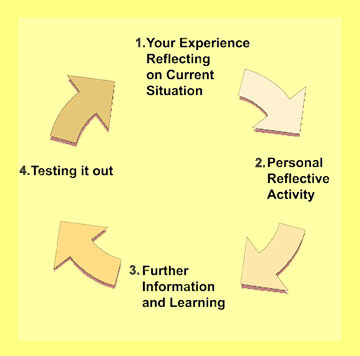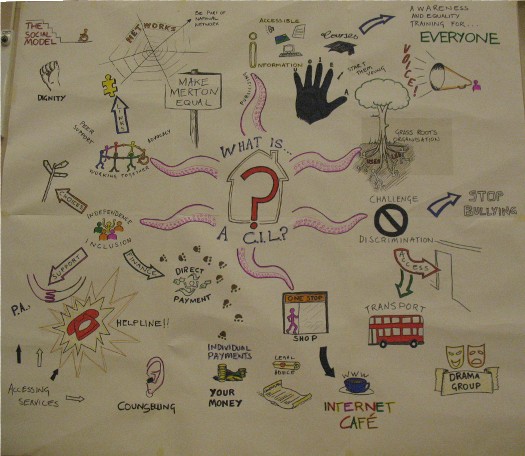
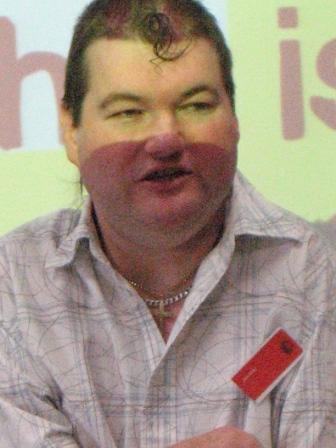
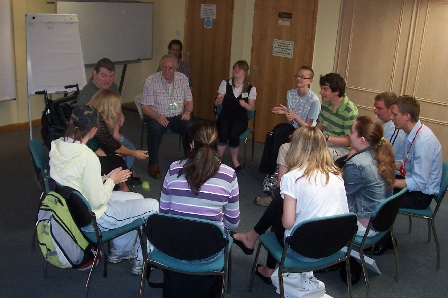
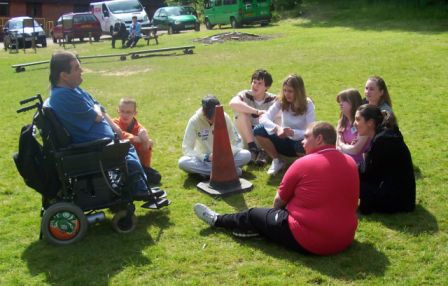




I have delivered training to a variety of people and organisations in all sectors , public, statutory, voluntary, business and commercial, media and government sectors over the past 20 years. Over that time my style has changed considerably. Essentially I have gone from delivering a prescribed programme to building a programme based on the needs of the participants and organisations.
You can download my new training profile here
Essentially my style is facilitating a process which is based in learning from experience. This is achieved through a cycle of action to reflection to action (or Praxis), along dialogue and the ability to find alternative perspectives brings about the type of learning which becomes intrinsic and transformative and brings about real change. I enjoy collaborative learning with individuals and organisations who genuinely want to be part of a process of learning and change. I value non-formal learning and the use of performing arts, multi-media and a creative process in developing solutions toward inclusive practice.
![]()
People have a range of starting points based on their individual experiences and I endeavor to help participants to feel comfortable and to examine blocks & barriers to their learning. Rather than imposing right or wrong answers and models we work collaboratively to build an understanding that reflects our context and new perspectives which focus on equality and inclusion. Dialogue is a key method used but this doesn't mean just a talk shop. Encouraging dialogue is about identifying what's important ad creating a free flow of ideas and perspectives between all, participants, facilitator and external influences.
I believe our actions are informed by our values and beliefs. We act upon what we believe to be true and we priorotise that which we value. So my style of facilitation is to encourage an examination of our values & beliefs as this will encourage a process of change which is owned. Here are a few bits of the Theory underpinning my practice.
To chat about your training requirements or interest in anything on this page
email: ![]()
Underpinning Philosophy & Beliefs
“If the education process begins by
bringing out the learner’s beliefs and theories,
examining and testing them, and then integrating the new,
more refined ideas into the person’s belief systems,
the learning process will be facilitated.”
Kolb, 1984.
”The creation and alteration of our
beliefs, values, actions, relationships and social forms that result from this,
are ways in which we realise our humanity. The extent to which adults are engaged
in a free exchange of ideas,
beliefs and practices is one gauge of whether a society is open, democratic
and healthy.
If adults of widely different class and ethnic groups are actively exploring
ideas,
beliefs and practices then we are likely to have a society in which creativity,
diversity and continuous re-creation of social structures
are the accepted norms “
Stephen D Brookfield, 1986.
Values
Openness
People are more likely to manage their learning opportunities if there is a
willingness to share openly the relevant issues.
This does not imply that there are no boundaries, rather a move towards openness.
Equality Of Worth
People will be more ready to learn if they feel the trainer values and respects
their learning.
Rather than a trainers attitude of “I know more.... so I am better than...”.
Trust
People will be more able to overcome any blocks to their learning
if they are able to trust the trainer with any information shared.
Confidentiality
This needs to be considered to enable you to build on openness and trust.
Adapted by John Kelly, Jan 98.
Original extract from Tutoring by John C Miller; National Institute For Careers,
Education & Counselling. 1982.
Learning for change
“In order for the oppressed to be able to wage
the struggle for their liberation
they must perceive the reality of oppression,
not as a closed world from which there is no exit,
but as a limiting situation which they can transform.”
Paulo Freire, 1970.
Praxis
Action-Reflection-Action
Critical Reflection
Reflecting on reflection
